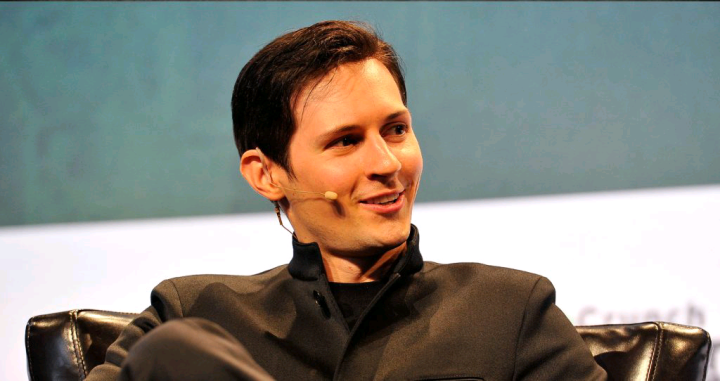The Russian government has issued a stern warning to France in response to the arrest of Pavel Durov, the CEO of Telegram, suggesting that the move might be intended to intimidate the prominent tech entrepreneur.
Durov, who is 39 years old, was detained in Paris over the weekend on charges related to his company’s alleged failure to prevent the dissemination of illegal content on the Telegram platform.
His company has strongly refuted these allegations.

The Kremlin has expressed deep concerns about the arrest, with spokesman Dmitry Peskov highlighting the gravity of the charges and the need for substantial evidence.
Peskov remarked, “The charges are indeed very serious and require no less serious evidence. Otherwise, this would be a direct attempt to restrict freedom of communication and, I might even say, directly intimidate the head of a large company.”
This statement underscores Russia’s apprehension that the arrest might be an attempt to exert pressure on a significant figure in the tech industry.
Pavel Durov, who holds citizenship in France, the United Arab Emirates, and St. Kitts and Nevis, was detained at Paris–Le Bourget Airport on Saturday after arriving from Azerbaijan via private jet.
The arrest has garnered considerable international attention, given Durov’s high profile and the implications of the charges against him.
The Paris Public Prosecutor’s Office has indicated that Durov faces several potential charges, including complicity in drug trafficking, money laundering, and facilitating the distribution of child pornography.
These allegations are linked to claims that Telegram has been used to spread illegal content, a matter the company has consistently denied.
In response to the arrest, French President Emmanuel Macron has emphasised the independence of the judiciary and reassured the public about the country’s commitment to freedom of expression and innovation.
In a statement posted on his verified X (formerly Twitter) account, Macron asserted, “France is deeply committed to freedom of expression and communication, to innovation, and to the spirit of entrepreneurship. It will remain so.
In a state governed by the rule of law, freedoms are upheld within a legal framework, both on social media and in real life, to protect citizens and respect their fundamental rights.”
Macron further clarified that the arrest of Durov was part of an ongoing judicial investigation and was not influenced by political considerations.
He stated, “The arrest of the president of Telegram on French soil took place as part of an ongoing judicial investigation. It is in no way a political decision. It is up to the judges to rule on the matter.”
This incident has intensified scrutiny on the relationship between international tech companies and national legal systems, highlighting the complexities involved when global business figures face legal challenges in different jurisdictions.
It also raises questions about the balance between maintaining public order and protecting individual rights, especially in the context of digital platforms that play a significant role in global communication.
The arrest of Pavel Durov, coupled with the subsequent diplomatic tensions, underscores the growing intersection of technology and international law.
As the situation develops, it will likely continue to attract attention from both legal and tech communities worldwide, with potential implications for how international tech figures are treated under varying national laws.
The outcome of this case will be closely watched, as it may set a precedent for how similar cases involving global tech leaders are handled in the future.
The broader implications for freedom of expression and the operational autonomy of tech companies in the face of legal pressures from different countries remain a key area of concern.
Support InfoStride News' Credible Journalism: Only credible journalism can guarantee a fair, accountable and transparent society, including democracy and government. It involves a lot of efforts and money. We need your support. Click here to Donate
